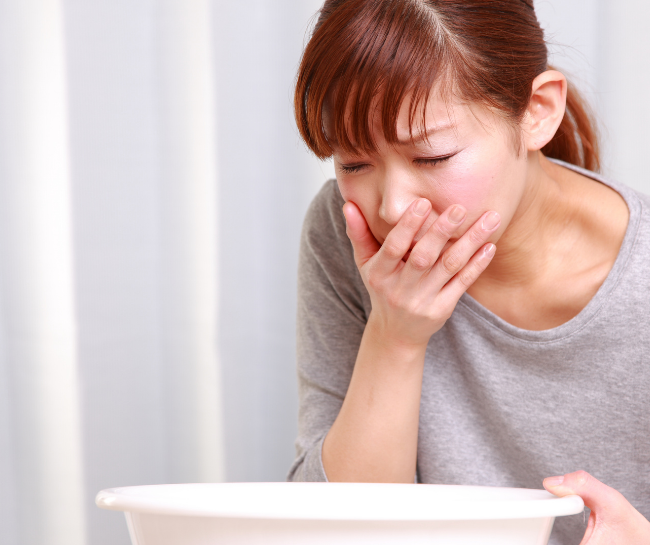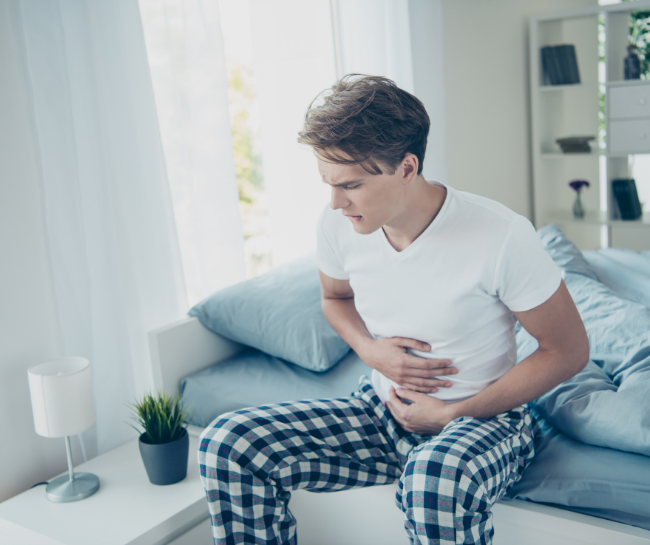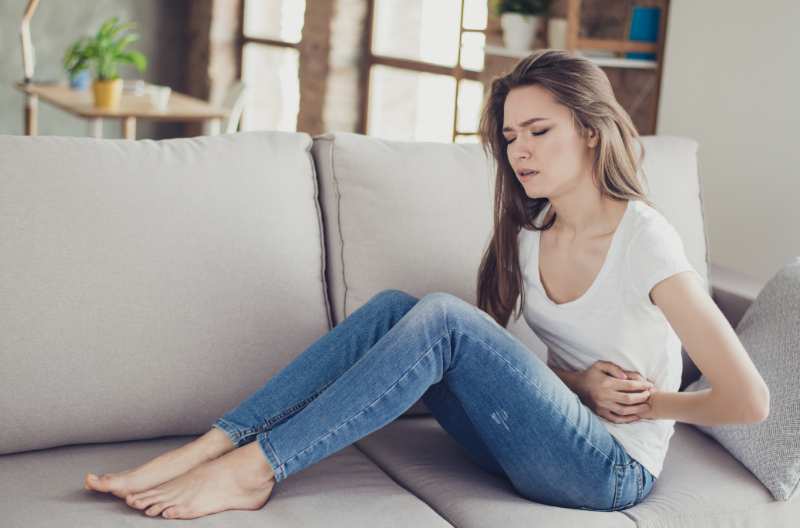Constipation is a frequent digestive issue characterized by the difficulty to release stool or having less than three bowel motions per week. It occurs when your large intestine absorbs too much water from your feces, causing it to be challenging to expel out of your body. This accumulation of stool may prevent food in the stomach from moving to the intestines, causing nausea and bloating. Although intermittent constipation is typical, some individuals suffer from constipation, impairing their ability to carry out everyday activities.
On the other hand, nausea is best defined as stomach discomfort or queasiness. Even though these illnesses may occur individually, they can also happen as symptoms of a particular underlying issue. Furthermore, if you’ve ever wondered how can constipation cause vomiting, here is why.
Why does constipation make you nauseous

Can constipation cause vomiting? Yes! If your colon is not performing correctly, your whole gastrointestinal tract is not in perfect balance. Hence, a sluggish sensation in your stomach is caused by an accumulation of feces in your digestive system. Moreover, your bowel is involved in the cleansing process of your body. When food stays more prolonged than usual to pass through your intestines, toxins accumulate in your body. These poisons are responsible for the feeling of nausea.
Constipation may also cause stomach dilatation and bloating, which happens when feces linger in your colon for an extended time. This causes a rise of germs in your colon, which causes nausea. Furthermore, based on the severity of your constipation, you may lose your appetite and begin avoiding meals. When a person’s stomach is empty, they may feel nauseated.
How do I get rid of constipation and vomiting

If your nausea is accompanied by constipation, you must first address constipation. Treatment for constipation often starts with dietary and lifestyle adjustments intended to enhance the speed at which stool travels through your intestines. If such modifications are ineffective, your physician may suggest medications or surgeries.
Dietary and lifestyle modifications
To treat constipation, your physician may advise you to make the following adjustments:
- Double your fiber consumption. You are increasing the weight of your feces and expediting its travel through your intestines by including fiber in your diet. Each day, gradually increase your intake of fresh fruits and vegetables. Also, cereals and whole-grain slices of bread are preferable.
- Exercise regularly. Physical exercise stimulates the activity of the muscles in your intestines. Try to get some exercise on several days of the week. Whether you don’t currently exercise, see your doctor to see if you’re in good condition to begin.
- Don’t disregard the need to go to the bathroom. Give yourself adequate time in the toilet to release your feces without interruptions and without feeling pressured.
- Drinking more water. Getting enough water, particularly 8 to 10 glasses every day, may aid your constipation.
Here are a few suggestions for acute nausea alleviation, regardless of the cause:
- Avoid compressing your stomach by sitting up straight, particularly after eating.
- Apply a cold compress to the back of your neck.
- Serve yourself some ginger tea. Numerous studies demonstrate that ginger is an excellent and low-cost remedy for nausea.
- Apply a heating pad to your tummy. This might assist in calming your stomach muscles and alleviating nausea.
💡 Nausea is a general feeling of unease and discomfort in the stomach, often with the urge to vomit. The word nausea comes from the Latin word for seasickness.
Laxatives
There are several forms of laxatives. Each one works slightly differently to make it simpler to produce a bowel movement. The following medications are accessible without a prescription:
- Stimulants – Bisacodyl (Dulcolax, Correctol) and Sennosides (Perdiem, Senokot and Ex-lax) are stimulants that force your bowels to constrict.
- Lubricants – Mineral oil and other lubricants help feces travel more readily throughout your colon.
- Fiber Supplements – Fiber supplements increase the flow rate of your stool. Bulkier stools are smoother and simpler to release. Several fiber supplements are Calcium Polycarbophil (Equalactin, FiberCon), Psyllium (Konsyl, Metamucil), and Methylcellulose (Citrucel).
- Suppositories and Enemas – Tap water enemas may be beneficial in softening feces and triggering a bowel movement. Through offering lubricant and stimulation, Bisacodyl or Glycerin suppositories also help in the bowel movement out of the body.
- Osmotics – Osmotic laxatives aid in feces thru the colon by boosting fluid flow from the intestines and stimulating bowel movements. Some are Lactulose, Magnesium Citrate (Constilac, Cholac), Oral Magnesium Hydroxide (Dulcolax Milk of Magnesia, Phillips’ Milk of Magnesia ), and Polyethylene Glycol (Glycolax, Miralax).
- Bowel Softener – Docusate Calcium (Surfak) and Docusate Sodium (Colace) are bowel softeners that take water from the intestines to moisturize the feces.
Surgery
For those who have tried alternative therapies and have unusually delayed stool passage through the colon, surgical removal of a portion of the colon may be possible. Since the removal of the whole colon is seldom required.
Comment below to share your thoughts and don’t miss our blog on taking vitamins on an empty stomach. Check also this blog on canned tuna and acid reflux.

